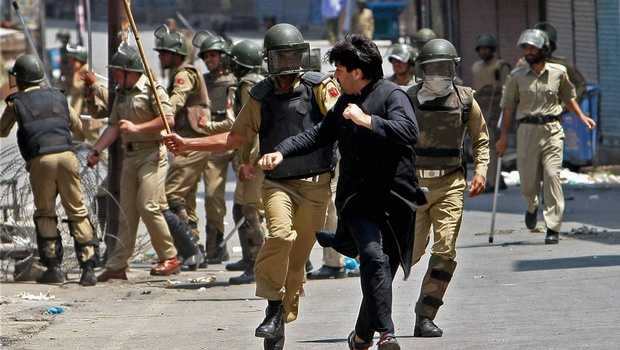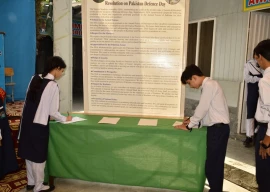
The controversial use of pellet guns has compromised the eyesight of over 100 young Kashmiris and caused an international uproar. Last month, the Indian government constituted a panel tasked with finding a replacement to the pellet gun, according to Kashmir Media Service.
In the backlash following the killing of Burhan Wani — a Hizbul Mujahideen commander — by Indian security forces, 66 civilians have been killed, many while defying a sweeping curfew to join banned protests. Several members of the Indian security forces have also been killed, making it the deadliest chapter in Kashmir’s troubled history since a similar spike in 2010.
'Deadly mix' set to compound Kashmir's misery
Media reports suggest that the panel has agreed on newly developed PAVA shells, a chilli-based munition that temporarily incapacitates the target and renders it immobile. PAVA, also known as Pelargonic Acid Vanillylamide or Nonivamide, is an organic compound found characteristically in natural chilli pepper, which is capable of temporarily incapacitating the targets and render them immobile for several minutes, India Times reported.
It is like capsaicin, a natural capsaicinoid from chili peppers and commonly used in food additives to create a hot sensation, even in self-defence pepper sprays and as an alternative to capsaicin in medical products for topical treatment of pain. The PAVA shell has a projected jet range of 4-5 metres, which gives officers a useful reactionary gap when dealing with violent subjects. It is completely odourless and will not damage clothes or skin.
US voices concern over Kashmir violence
During a press conference in Srinagar on Thursday, Indian Home Minister Rajnath Singh indicated that security forces in the occupied valley would get an alternative within a few days. Reports said the panel favoured PAVA shells as an alternative to pellet guns and had recommended that the Tear Smoke Unit (TSU) of the Border Security Force in Gwalior be immediately tasked with bulk production of the shells.
This article originally appeared on India Times.
1732503274-0/Untitled-design-(43)1732503274-0-405x300.webp)
1732501636-0/Untitled-design-(42)1732501636-0-165x106.webp)

1732498967-0/Outer-Banks--(1)1732498967-0-165x106.webp)
1732086766-0/BeFunky-collage-(74)1732086766-0-165x106.webp)












COMMENTS (5)
Comments are moderated and generally will be posted if they are on-topic and not abusive.
For more information, please see our Comments FAQ